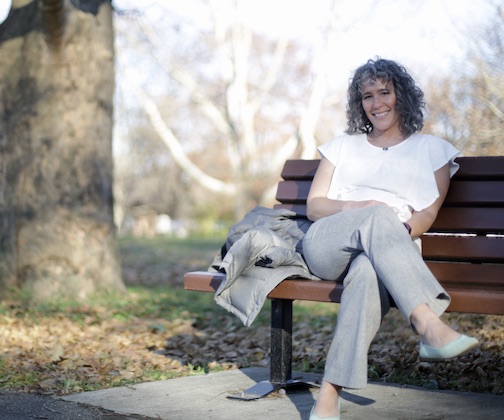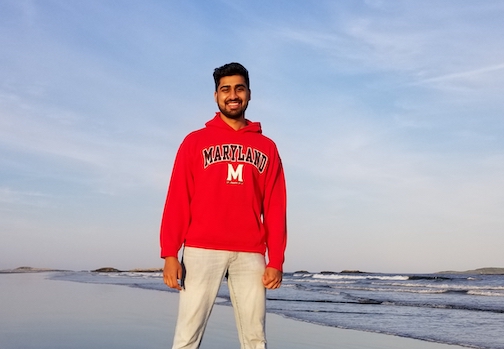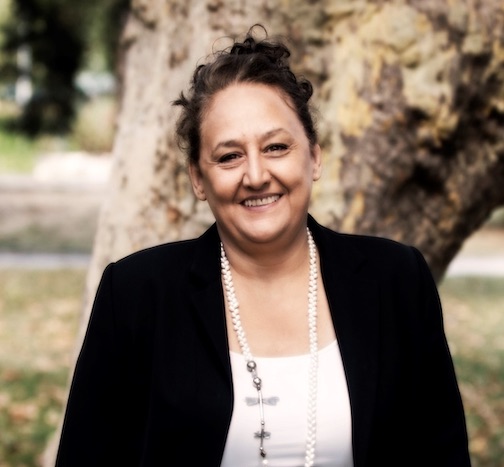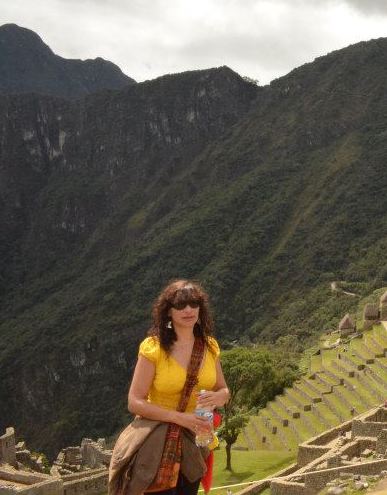Tell us about your background and how you became a supporter of human rights?
I became a deaf person when I was 13 years old. One day I was a hearing – “normal”, from society’s view- person, and the next day I was deaf, and therefore, a disadvantaged person for the society as if I was of less value or less capacity. However, I was the same human being, from my view. I experienced discrimination, bullying, exclusion, stigma, prejudice, the loss of friendships; just because I wasn’t a hearing person anymore. Thus, human rights and equality were principles I was aware of and fighting for since very young. I studied Latin American Literature as my BA, but I wanted to professionalize and work in the Disability Rights field to advocate for inclusive public policies. That’s the reason I came to the US (I am from Chile, South America) with a Ford Foundation Scholarship in 2005 to take a Master of Science Program in Disability Studies and Human Development at the University of Illinois at Chicago. I graduated in 2007. Before coming to the US, I was already a leader of the Chilean Deaf Community and advocated for Sign Language Rights on the news in the public TV. I sued the Chilean Government, and in 2002 after six months of negotiation, we achieved the inclusion of Sign Language Interpreters in the TV news for the first time in Chile and Latin America. It is something Chile still has.
Tell us about your work and the neighborhood or different locations that you work in.
When I graduated, I applied for a job opening in the Organization of American States, OAS, in Washington D.C., as Program Manager for Social and labor Inclusion of persons with disabilities in four Latin American countries: Mexico, El Salvador, Ecuador, and Peru. Thus, my dream of working for social inclusion, equality and human rights in Latin America was fulfilled. I worked 12 years, promoting disability rights, social inclusion, labor inclusion, educational inclusion, legal capacity and access to health, implementing projects and programs in the region. Some countries covered: Chile, Argentina, Paraguay, Uruguay, Peru, Ecuador, El Salvador, Guatemala, Colombia, Dominican Republic, Haiti, Panama and Mexico. This year, I got an offer to become the Executive Director of the World Federation of the Deaf (WFD) to promote deaf rights and linguistic rights worldwide, and I accepted. That’s where I am now. The WFD headquarter is in Helsinki, Finland, but I am working remotely from Washington D.C due to the pandemic.
How has your routine changed since the pandemic?
While working at OAS, I used to travel at least once a month to work. My last travel was in March 2020 to Guatemala to support a regional meeting of youth with disabilities. After that, OAS was closed, and we started working from home. I have been working from home from that day to date, either for the OAS or the WFD. I use the zoom platform for meetings, workshops, training seminars, and so on. We use Survey Monkey or google forms for research, surveys, data collection. My work during the pandemic is 100% online. With the WFD, my routine changed again due to the time zone. I have to start my day very early. I also have more responsibilities, and thus, sometimes I don’t realise I am working more hours than I should.
How does trust play a role in your daily work routine, especially in the current COVID atmosphere?
As I said, we aren’t working in the same space; we all are working remotely. We care for others and ourselves at the same time. I don’t think it is about trust; sometimes, it can happen that you got COVID and don’t have symptoms. We can trust each other, but it is about CARE. To care, we need to prevent and avoid any unnecessary risk.
What do you wish the public knew about what you experience in your field?
I want people to understand that Sign Languages are full and actual languages, the natural and native language of mainly visual persons. Language deprivation at 0 to 5 years old condemns deaf people to exclusion and a life-long gap to achieve equality and social inclusion. Without sign language recognition, deaf people cannot exercise any human rights.
Also, I would love people to understand that disability is a social construction, the same as the concept of gender, race, or ethnicity, to put people in the lowest social positions and roles just because of their diverse bodies and ways of functioning in society. These concepts add an arbitrary “disvalue” to human diversity.
What is the best part of your day? The hardest?
The hardest part is to get up too early in the morning! I am an owl person! The best part is the privilege I have to watch the Potomac river from my window every day, the sunrise during an early morning meeting, the sunset colors along the river and in the sky.
Will Covid-19 change your approach to your work going forward?
I think COVID-19 has aggravated the inequality and exclusion of deaf people and persons with disabilities in developing countries. Decision-makers always forget to make the information accessible in sign languages, and this omission is crucial in emergencies contexts. We are about to start a mapping process about the access to health -including vaccination- of deaf people in Latin America. We want to identify their main barriers and good practices that could be replicated in other countries with similar situations. We are also preparing a position paper about the right to access treatment during the COVID-19 pandemic for deaf people.
Last year, while working at OAS, I edited and coordinated a Practical Guide of inclusive and right-based responses in the context of COVID-19, focused on public policies for persons in situations of vulnerability. This was the first document of orientation in public policies for government authorities and decision-makers in the context of the pandemic.
What is the best life/career advice anyone has ever given you?
I think it was when my parents pushed me to take the scholarship and come to the US for my masters degree. I was about to freeze this opportunity because, at that time, I was volunteering as a policy advisor in my home country for disability laws. I am their only child, and I am a deaf woman. They could have chosen to overprotect me and keep me around them. However, they made me promise them I would leave the country and take this opportunity for growth. And truly, this scholarship changed my life in 180 degrees and forever. A similar thing happened when I was in HS facing bullying every day, and I came home and said to my mom: mom, I don’t want to go back to school anymore!. And she said: ok. She just said ok. Thus, my reaction was: bah?. She didn’t get mad at me?. Hmm, ok, I will go tomorrow, and tomorrow, and tomorrow….
Can you recommend one easy, daily self-health practice that can help people get through the day?
Go and talk with nature!. Hug a tree! Go for a walk by the trees or the river 30 minutes daily without texting or talking if you can! Go and adopt a pet! Love heals us!
Is there anything else you’d like the public to know about how it feels to be an advocate for disabilities and humanity in the middle of a global pandemic?
To be an advocate for disability rights and humanity is the cause that moves my life! It will happen with or without a global pandemic. Our historical exclusion and discrimination preceded this pandemic. Situations now are aggravated, but there is nothing new under the sun in our systemic inequality. On the contrary, maybe this pandemic is an opportunity to raise awareness and build not a back to normality but a new structural reality based on equality. It is not about how I feel; it is about doing what is right and fair for humanity. The essence of our humanity is diversity, not homogeneity. As an Argentinian movie quotes: persons can change their name, their address, their religion, their faces… But there is only one thing that cannot be changed: people cannot change their passion! Disability Rights, Human Rights, Social Justice and Equality are my passion! It is the only thing and the only place where I will always be!
More Stories from Kinnected

At times, it has been really frustrating to be a strategist and health communication professional and witness the lack of strategic planning and messaging that we have over the last two years.
-
4 years ago

"What many people miss is that emotional exhaustion among clinicians existed long before the pandemic."
-
4 years ago

"A lot of people argue whether technology is good for the future of humanity or bad. In my opinion, it is both - just as an herb could be a poison or a medicine."
-
4 years ago

